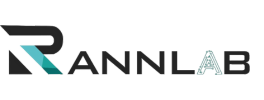Software Development Trends 2023 Update
Software Development technology services Technology Trends 2023 Trends 2023
Best Software Development Tools, Frameworks & Libraries for 2023
As the field of software development continues to evolve, developers are always looking for the best tools, frameworks, and libraries to help them create high-quality, efficient, and scalable applications. In 2023, there are several popular options that are worth considering for your next project. Here are some of the best software development tools, frameworks, and libraries for 2023:
- React: React is a popular JavaScript library for building user interfaces. It has gained popularity for its ability to create highly responsive and dynamic user interfaces in web applications. React uses a declarative programming model, which allows developers to write more concise and understandable code. With its wide range of community-contributed libraries and resources, React is a versatile and highly effective tool for building modern web applications.
- Node.js: Node.js is a JavaScript runtime that allows developers to build high-performance and scalable applications. It provides a server-side platform for creating and running web applications, allowing developers to write server-side code in JavaScript. Node.js is highly efficient and provides fast response times, making it an excellent choice for applications that require a lot of real-time data processing or heavy I/O.
- Angular: Angular is a popular JavaScript framework that is used for building single-page applications (SPAs). It provides a powerful set of features, including two-way data binding, dependency injection, and declarative templates, which makes it easier to create complex web applications. Angular is also highly modular, which allows developers to break up large applications into smaller, more manageable pieces.
- TypeScript: TypeScript is a superset of JavaScript that provides optional static typing, making it easier to detect errors and ensure the integrity of code. TypeScript is highly scalable, allowing developers to write and maintain large codebases with ease. It is also highly compatible with existing JavaScript libraries, making it easy to integrate with existing code.
- Django: Django is a popular Python web framework that provides a high level of abstraction, making it easier to build complex web applications. It provides a clean and efficient approach to web development, allowing developers to focus on building business logic rather than worrying about infrastructure. Django is highly scalable and provides a wealth of built-in features, including authentication, admin panels, and content management systems.
- Kubernetes: Kubernetes is a container orchestration platform that provides a highly scalable and efficient way to manage and deploy containerized applications. It is highly portable and can be run on any cloud or on-premises infrastructure. Kubernetes is highly configurable, allowing developers to customize their deployment to suit their needs, and provides a wide range of tools for managing and monitoring applications.
- Flutter: Flutter is a popular mobile app development framework that allows developers to build highly performant and attractive mobile applications for both iOS and Android. It provides a rich set of features, including a fast development cycle, hot reloading, and a wide range of widgets and tools for building custom UIs.
- Spring Boot: Spring Boot is a popular Java-based framework that provides a highly efficient way to build enterprise-level applications. It provides a wide range of features, including a highly modular architecture, built-in support for many popular databases, and a wide range of tools for managing and monitoring applications.
- AWS Lambda: AWS Lambda is a serverless computing platform that allows developers to build highly scalable and efficient applications without worrying about infrastructure. It provides a wide range of features, including automatic scaling, event-driven triggers, and a pay-per-use pricing model, making it a highly cost-effective solution for building modern applications.
- Git: Git is a popular version control system that allows developers to easily manage and collaborate on code. It provides a highly efficient way to track changes, merge code, and manage branches, making it a must-have tool for any software development team.
Share








